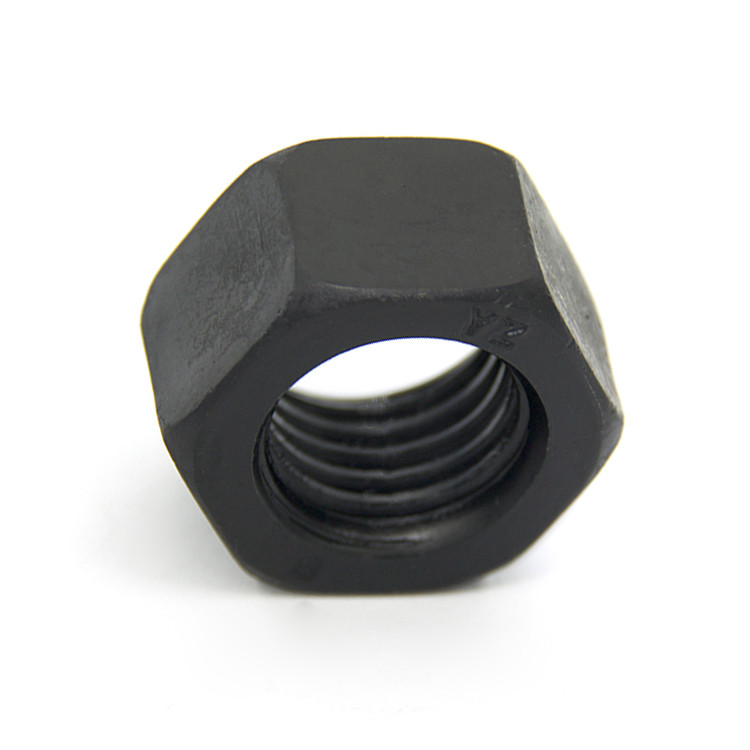high quality stud bolt astm
des. . 03, 2024 16:32 Back to list
high quality stud bolt astm
Understanding High-Quality Stud Bolts ASTM Standards and Applications
Stud bolts are critical components in various engineering applications, providing essential fastening solutions across different industries, including construction, automotive, aerospace, and oil and gas. Among the myriad of specifications governing fastening hardware, ASTM (American Society for Testing and Materials) standards are widely recognized and adopted globally. This article delves into the significance of high-quality stud bolts as defined by ASTM standards, their manufacturing processes, properties, applications, and maintenance considerations.
The Role of ASTM Standards
The ASTM standards relevant to stud bolts encompass specifications for materials, dimensions, mechanical properties, and testing methods. The most commonly referred standards include ASTM A193, which covers alloy and stainless steel bolting materials for high-temperature or high-pressure service, and ASTM A320, which pertains to high-strength, low-alloy steel bolts and stud bolts for low-temperature service. These standards ensure that the stud bolts produced meet rigorous performance criteria, including strength, durability, and corrosion resistance.
Manufacturing Process
High-quality stud bolts begin their journey in well-equipped manufacturing facilities where raw materials, typically carbon steel, alloy steel, or stainless steel, are carefully selected based on the intended application. The manufacturing process involves various stages, including
1. Forging Initially, metal bars are heated and shaped through a forging process that enhances the material's mechanical properties. 2. Threading Once forged, the bolts are cut to length and threaded. Precision in threading is crucial for ensuring a proper fit with nuts or other components to prevent loosening over time.
3. Heat Treatment This step enhances yield strength, ductility, and toughness, making the stud bolts suitable for demanding environments.
4. Surface Treatment High-quality finishes, such as galvanization or coating, are applied to enhance corrosion resistance and improve the bolt's overall longevity.
5. Quality Inspection Before packaging, every batch undergoes rigorous testing, including tensile tests, hardness tests, and non-destructive testing, to ensure adherence to ASTM specifications.
Properties of High-Quality Stud Bolts
Stud bolts manufactured per ASTM specifications boast several key properties
- Tensile Strength High-quality stud bolts are engineered to withstand significant tension without failure, which is essential in high-stress applications. - Corrosion Resistance Depending on the materials and surface treatments used, stud bolts can resist various corrosive environments, extending their service life.
high quality stud bolt astm

- Ductility Quality bolts can undergo deformation without fracturing, which is critical during installation, where forces may be applied.
- Stability These bolts maintain their integrity under fluctuating temperatures and pressures, making them ideal for environments with changing conditions.
Applications
The versatility of stud bolts finds them employed in numerous applications. Some common uses include
- Structural Steelwork Fastening beams, girders, and columns in buildings and bridges. - Power Generation Supporting turbines, generators, and piping systems in power plants.
- Pipeline Construction Providing secure joins in oil and gas pipelines.
- Automotive Engines Holding critical engine components in place.
- Marine Applications Fastening parts of ships and offshore structures that require reliability under harsh conditions.
Maintenance Considerations
To ensure the longevity and reliability of stud bolts, regular inspection and maintenance are necessary. Corrosion monitoring, torque checks, and replacement of worn-out bolts are crucial practices. Additionally, proper installation techniques, such as using the correct torque specifications, can prevent failures due to over-tightening or under-tightening.
Conclusion
High-quality stud bolts conforming to ASTM standards are indispensable components in many industries. Their robust manufacturing processes, adherence to stringent quality control measures, and diverse applications underscore their importance in achieving safe and reliable engineering solutions. Understanding the specifications and requirements related to stud bolts is essential for engineers and procurement specialists to make informed decisions that enhance performance and safety in their projects.
Latest news
-
Top Wire Bolts Suppliers | AI-Optimized Fast Delivery
NewsAug.02,2025
-
Top Metric Wood Screw Companies | Durable & Reliable
NewsAug.01,2025
-
Premium Lawn Mower Handle Bolts Supplier | Fast Delivery
NewsJul.31,2025
-
Premium Silver Screws Supplier | High-Conductivity Fasteners
NewsJul.31,2025
-
Silver Screws Supplier: High-Quality Fasteners for Various Industries
NewsJul.30,2025
-
Top Spike Wheel Nuts Supplier - High Quality & Custom Options Available
NewsJul.29,2025
